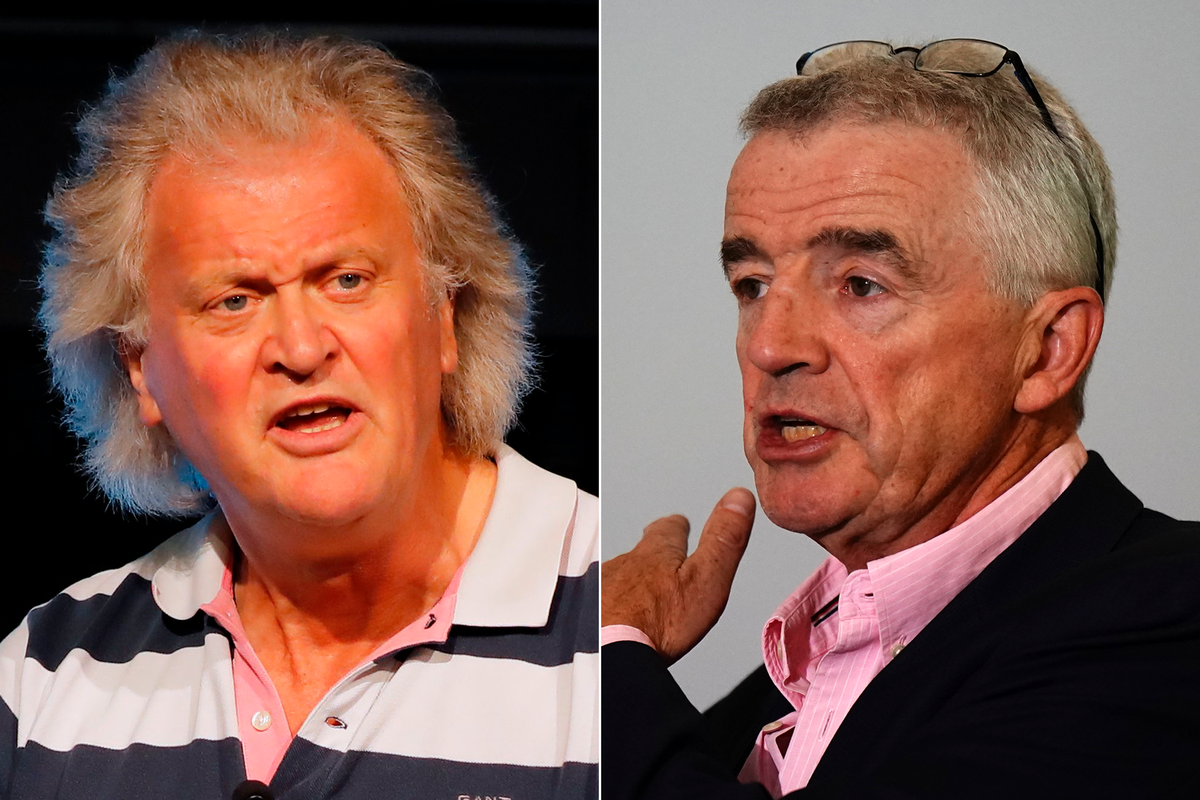A The dispute between Tim Martin – CEO of Wetherspoons – and Michael O’Leary of Ryanair is one of those where I would like to see both could lose.
Together they have managed to create mixed benefits for their respective industries. In one case they have created cheap (but unpleasant) bars, in the other cheap (but unpleasant) air travel. I try not to use either – because I am never quite so desperate for a beer or a trip to Paphos that they have to endure the price in human suffering that comes with purely financial savings.
I think we are all unhappy enough in Keir Starmer’s Britain, where “things can only get worse”. But what about the people who like to combine such pleasures? They have long since been unable to smoke in an airport bar or on an airplane (and yes, both were once common and perfectly normal) and are now being told they are no longer allowed to get drunk?
O’Leary says this because it is his cabin crew and his flight schedules (and profits) that have to deal with drunken rowdies on his planes; their natural boisterousness is enhanced by the pre-flight hospitality.
The man with the cheap seats puts it this way: “We don’t want to begrudge people their drink. But we don’t allow people to drive drunk, and yet we put them on airplanes at 33,000 feet.”
O’Leary provides impressive insights into the psychology of his clientele and explains: “In the past, people who drank too much would eventually collapse or fall asleep. But today these passengers also take pills and powders. It’s the mix. This leads to much more aggressive behavior that is difficult to control.”
Now, I’ve never taken ‘pills and powders’ and prefer a nice glass of port to lull me to dreamland on a long haul flight, but I can understand O’Leary’s problem. There’s not much he can do about the drugs, but he can limit alcohol consumption on board (which I assume happens when they pass out or get too cranky).
He also calls for rationing of the pubs and bars that have sprung up in our airports, where it is easy to catch the horrifying sight of someone enjoying a pint of Carlsberg and some chips for breakfast.
Across the ring, Martin speaks for the pre-loading community, making the case for removing two-for-one alcohol deals and the unfortunately named “shooters” from his airport menus several years ago. But without thirsty holidaymakers and over-excited businesspeople using his facilities, the pro-Brexit entrepreneur wouldn’t have a business, would he?
As I said, it is impossible to feel so much sympathy for these contemporary business and social icons, but the happy conclusion is that the arguments are pretty much groundless. There will be no one enforcing a drink limit per customer at airports because it is impractical.
If you can only have two drinks at the nearest Spoon, that’s fine too, because you can just take a quick stroll through the many other outlets that will sell you a few more glasses before making your weary and uncertain way to the gate (which is always further away than you think).
And if you really want to make sure the holiday of a lifetime is spent in a drunken frenzy, you can stock up on as many super-cheap wines, beers and spirits as you can from our ever-friendly supermarkets and get drunk at home first.
The attempt to stop the British from getting drunk and making fools of themselves in southern Europe is an affront to the accepted mores of our modern civilisation – and one that owes much to the vision of Martin and O’Leary.
All I can suggest is that they need a few drinks and a fight on the plane on their way to a nice sunny vacation. That would be the right way for them to settle their differences.

